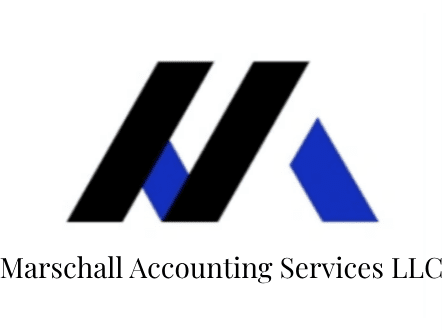Article: It is Officially 2020—Must I prepare for my taxes?

It is Officially 2020
Must I prepare for my taxes?
Jessica I. Marschall, CPA, President Marschall Accounting Services LLC
January 4th, 2019
Yes. Yes, you must begin preparing for your taxes. Like every CPA, we are entering our busiest season of the year.
However, the craziness (sleepless nights, gallons of Diet Coke and 100 hour work weeks) exponentially grows the closer we get to the March 15th (for partnerships and pass-through entities) and April 15th (for individuals and corporations) deadline. Do yourself, and your CPA, a huge favor and start getting organized now.
Where to begin? Here is a list of critical steps to take for the individual taxpayer to prepare:
1. Ensure W-2s and 1099s are received shortly after the filing deadline of 1/31/20 and check for accuracy. Notify your employer immediately if you find errors.
2. Speak with your CPA regarding the standard versus itemized deductions. Under the Tax Cut and Jobs Act (TCJA) the threshold for itemizing has increased substantially. If you are nowhere close to itemizing, do not spend hours combing through receipts for charitable contributions or adding up every last medical expense. The standard deduction thresholds for 2019 are:
The standard deduction for married filing jointly rises to $24,400 for tax year 2019, up $400 from the prior year. For single taxpayers and married individuals filing separately, the standard deduction rises to $12,200 for 2019, up $200, and for heads of households, the standard deduction will be $18,350 for tax year 2019, up $350.[1]
3. If you can meet these thresholds and itemize, collect the following:
a. Healthcare expenses (if they are in excess of 10% of your estimated Adjusted Gross Income—speak to your CPA about what they expect this to be.) If you are nowhere near the 10%, do not waste your time putting these together.
a. Healthcare expenses (if they are in excess of 10% of your estimated Adjusted Gross Income—speak to your CPA about what they expect this to be.) If you are nowhere near the 10%, do not waste your time putting these together.
c. Charitable contributions:
i. If monetary, ensure you have a receipt for donations greater than $250
ii. If non-monetary (think clothes to Goodwill or the Salvation Army) ensure you have a contemporaneous receipt if the donation is between $250-$5,000. Contemporaneous means it must be furnished at the time the donation is made. You are not allowed to go back to Goodwill in January 2020 and ask for a receipt for a $1,000 donation you made in July 2019.
iii. If non-monetary and greater than $5,000 you must have a qualified appraisal produced. If you happen to have donated a similar type of item and the aggregate donation value is greater than $5,000 you need to have an appraisal produced. For example, if you donated books from an antique collection valued at $2,000, $2,000 and $1,001 at three different times during the year, you must obtain an appraisal.
4. If parents of children eligible for the tax credit are not married or are divorced, ensure there is good understanding regarding who will claim the children for the child tax credit as well as who can claim Head of Household status—only one parent can claim H of H. Typically, this is spelled out in most divorce agreements but can be a major point of contention for couples who have never been married.
5. Ensure you have all investment documents gathered, which include 1099-Int, 1099-Div and all short and long term capital gains. Yes, this includes the 1099-Int you receive for the $5 of interest your savings account might have paid you. Contact your financial adviser if you have questions.
6. Ensure you and your CPA thoroughly review qualified educational expenses for dependents and determine if it makes more sense for the student to claim themselves or for the parent (who paid the expenses) to claim them.
7. Ensure you have statements for student loan interest paid and conference with your CPA regarding the thresholds for taking this deduction.
8. Discuss every single potential credit with your CPA. The renewable energy tax credit is only good through 2019 so if you invested in making your home more energy efficient, make sure to tell your CPA. There are tax credits for adopting children, homeowner credits, healthcare credits, etc. Please see the IRS page for a complete list of credits for individuals: https://www.irs.gov/credits-deductions-for-individuals
9. Ensure you know, and that your friends and neighbors know, that individuals with very low incomes often have no federal or state tax liability but they must file their federal and state return to receive a refund of their withholdings. Additionally, taxpayers who earn under a set amount and with dependents can qualify for the Earned Income Tax Credit. This is a refundable credit meaning amounts can be received over and above taxes due.
10. If you made estimated tax payments on self-employment income, ensure you communicate those payments to your CPA.
There are numerous other considerations but this should give you a good head-start.
Early preparation and close conferencing with your CPA enables the CPA to be proactive in ensuring all documents are received, reviewed and entered prior to filing. Taxpayers, insist on responsiveness from your CPA. They should be doing more than data entry. A good CPA and CPA firm should be involved year-round to help the taxpayer make sound financial decisions and ensure beneficial tax positions are taken. At Marschall Accounting Services, LLC, we diligently work with our clients year-round to ensure there are no surprises at tax time. Please visit our website: www.marschallaccountingservices.com or email to set-up a consultation:




